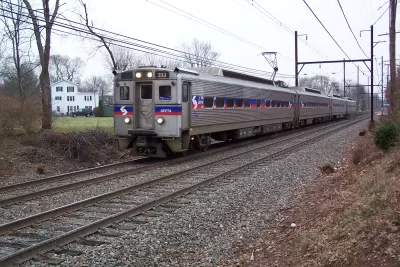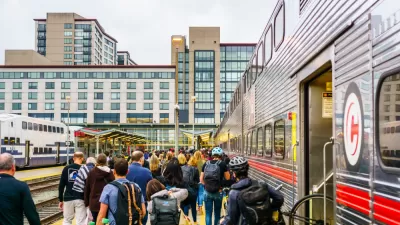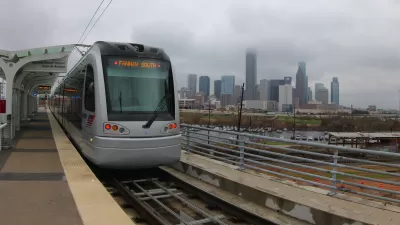The influx of federal emergency money used to keep public transit operational during the COVID pandemic will end this year. States and transit agencies across the country are searching for alternative funding sources.

State governments are trying to fill the gap in public transit funding left as the federal emergency money that kept them afloat dries up. “The fiscal cliff that public transit has been warning about has arrived,” writes Shirleen Guerra, reporter for the Center Square.
“The American Rescue Act Plan of 2021 included $30.5 billion in federal funding for transit agencies. The Coronavirus Aid, Relief, and Economic Security (CARES) Act set aside $25 billion for transit agencies,” the article states. But those funds end later this year.
States are taking a variety of approaches to make up the difference. Massachusetts and Pennsylvania are directly funding transit directly via their 2024-2025 budgets. The budget signed by Massachusetts Gov. Maura Healey last month doubled the amount of money for the Massachusetts Bay Transit Authority from $127 million to $314 million. Meanwhile, Pennsylvania Gov. Josh Shapiro’s proposed budget would increase the state share for public transit funding by 1.75 percent to $282.8 million investment.
In some states, “federal COVID emergency money transit has relied on will be replaced by other sources of federal dollars,” writes Guerra. In Colorado and Michigan, that will come in the form of funding from the 2021 Infrastructure Investment and Jobs Act.
Some transit agencies are turning directly to taxpayers for additional revenue, with mixed success. The mayor of Orange County, Florida, Jerry Demings, has floated the idea of a 2024 ballot measure to increase sales tax to help fund the Central Region Transportation Authority (LYNX) near Orlando, despite the fact that voters rejected a similar measure in 2022.
FULL STORY: Transit searches for ways to replace billions in federal emergency money

Planetizen Federal Action Tracker
A weekly monitor of how Trump’s orders and actions are impacting planners and planning in America.

The Simple Legislative Tool Transforming Vacant Downtowns
In California, Michigan and Georgia, an easy win is bringing dollars — and delight — back to city centers.

San Francisco's School District Spent $105M To Build Affordable Housing for Teachers — And That's Just the Beginning
SFUSD joins a growing list of school districts using their land holdings to address housing affordability challenges faced by their own employees.

In More Metros Than You’d Think, Suburbs are Now More Expensive Than the City
If you're moving to the burbs to save on square footage, data shows you should think again.

The States Losing Rural Delivery Rooms at an Alarming Pace
In some states, as few as 9% of rural hospitals still deliver babies. As a result, rising pre-term births, no adequate pre-term care and "harrowing" close calls are a growing reality.

The Small South Asian Republic Going all in on EVs
Thanks to one simple policy change less than five years ago, 65% of new cars in this Himalayan country are now electric.
Urban Design for Planners 1: Software Tools
This six-course series explores essential urban design concepts using open source software and equips planners with the tools they need to participate fully in the urban design process.
Planning for Universal Design
Learn the tools for implementing Universal Design in planning regulations.
Smith Gee Studio
City of Charlotte
City of Camden Redevelopment Agency
City of Astoria
Transportation Research & Education Center (TREC) at Portland State University
US High Speed Rail Association
City of Camden Redevelopment Agency
Municipality of Princeton (NJ)





























